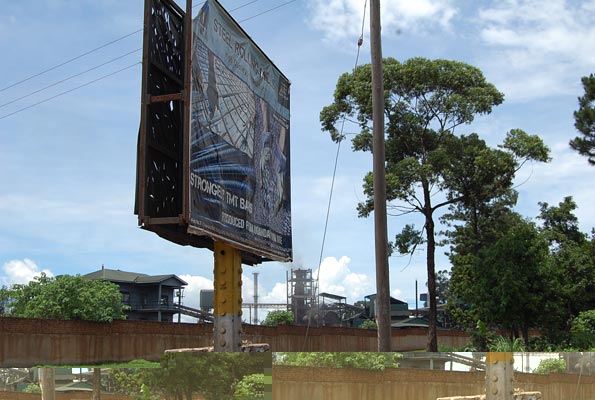It is now obviously impossible to track where taxpayers’ money is going in the forthcoming Uganda government bailout coded named ‘Rescue Fund’ after a decision was reportedly reached to fork out close to Shs1 trillion (approx.US$300 million) to save distressed big businesses.
From Bitature’s Simba Group which has failed to pay a Diamond Trust Bank loan of Shs 210bn, Abdi Alam’s Steel Rolling Mills Ltd which in April was facing closure and loss of its machinery to Standard Chartered Bank as the bank moved to recover its loan amounting to more than Shs 75bn and the flamboyant Sikander Lalani’s Roofings Steel Mills that is struggling with a debt of Shs 201bn from IFC and Shs 8bn from Diamond Trust Bank, Uganda’s taxpayers hope funds allocated for the bailout program, part of the national government’s response to the high-end economic crisis, should also be used to purchase majority shares of the companies, effectively gaining control of some of these private companies.
Observers give account of how most of the owners of these companies are some of the richest Ugandans and either individually or through their companies have invested in huge real estate projects that consume a lot of this borrowed capital which they can only recover over a long time. Unfortunately, instead of dealing with the realities of investment, the owners then turn to Government for bailouts, citing high interest rates and high electricity tariffs as being responsible for affecting the profitability of their business.
Word has it how on July 9, President Yoweri Museveni summoned top officials from the Ministry of Finance, the Central Bank and Uganda Revenue Authority (URA) for a meeting at State House, Entebbe which was attended by the Deputy Central Bank Governor, Louis Kasekende, URA Commissioner General, Doris Akol, and the head of Operation Wealth Creation, who is also President Museveni’s brother, Gen. Caleb Akandwanaho aka Salim Saleh, to deliberate on how to save over 100 Ugandan companies that are reeling under heavy commercial bank loans.
Such a scenario has happened before. In 2007 government decided to write off about 1.6 trillion shillings in ‘bad loans’ to the Managing Director of the now defunct Tri-Star Apparels Vellupilai Kananathan and Kampala businessman Hassan Basajabalaba. Both are now off the Ugandan grid considering Basajja has even moved most of his money to Tanzania and Kenya, while Sri Lankan businessman Kananathan is now Uganda’s consul to the Asian Tiger.
And yet again President Museveni’s government thinks those tycoons’ businesses are “too big to fail” which describes why most manufacturing firms mostly owned by Ugandan Indians have become so large and so deeply integrated into the system that if Uganda let them collapse they would take everything else with them.
If a company is too big to fail, then, it follows, taxpayers have to bail them out.
It’s quite a problem. A market economy is supposed to be dynamic, full of entries and exits. Firms that add economic value thrive. Those that do not go broke.
So bailing out failed companies makes the economy less efficient. More glaringly, it redistributes money from Uganda’s majority, who are the poor, to the rich. And more so it creates ‘moral hazard’ – a belief by management that ultimately they won’t have to pay for their mistakes like was the case with the Sugar Corporation of Uganda Limited (SCOUL), owned by the Mehta family, which attempted to take over 30% of the endangered Mabira forest reserve for sugarcane growing in 2004.
Moral hazard is a particularly severe problem for Ugandan businessmen and their banks. These banks trade on risk. A bank’s basic job is to transform short-term highly liquid deposits into long-term extremely illiquid loans. Too much of the latter will prevent redemption of the former.
‘Too big to fail’ businessmen like flashy young tycoon Hamis Kiggundu of Ham Enterprises, who owns commercial arcades allover Kampala and the most expensive home in Uganda, encourages banks like Diamond Trust Bank to make riskier loans like the Shs33bn Mr Kiggundu has failed to pay back after all. Why would they? They’re not the ones bearing the cost of failure. Ugandan taxpayers are. So it would be great to get rid of ‘too-big-to-fail’. Or at least limit it somehow.
Simply put, there are no ways to credibly constrain future governments from deeming an institution too big to fail.
There’s been a cottage industry of Makerere economics and social academics trying to figure out how to tell which institutions are systemically significant.
No doubt they’re all doing great, insightful work. But the fact remains these studies of systemic significance are just a lot of after-the-fact reasoning.
It was policymakers – not scholars – who came up with the idea that some institutions were just too interconnected with the financial system to collapse peacefully.
In conclusion, this intended bailout is absurd. It is wrong for government to use tax payers’ money to assist people who were hand-picked to work on failed projects.
It is evident that a new class built on patronage and corruption will result into a dangerous source of conflict and tension.
To correct this, Parliament should instead appoint a committee to investigate the irregular cash bailouts to the indebted companies and be careful not to soil its hands by endorsing such a gross irregularity.








Interestingly, the same government privatised national or state owned companies on account of not being well managed and non-profitable.
Now they turn round to rescue the efficient investors who are supposed to do serous business using the money of those whose businesses they terminated:
Uganda airlines
Uganda commercial Bank
Uganda Railways
etc.
etc